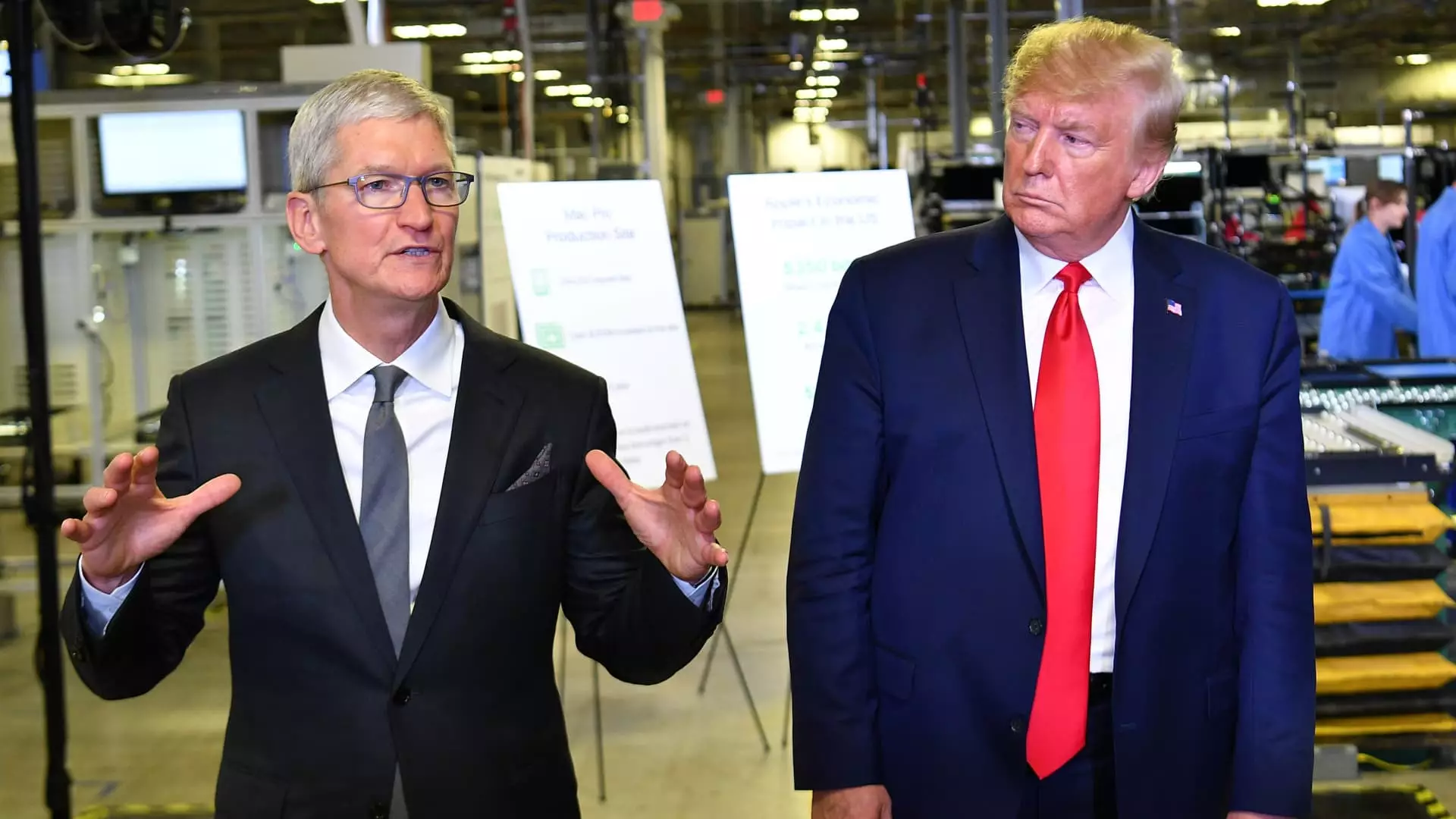In a startling turn of events, former President Donald Trump has once again placed Apple in an uncomfortable spotlight with his latest social media declaration regarding tariffs. He has expressed explicit expectations for Tim Cook and the tech giant to ensure that iPhones sold in the United States are manufactured domestically. The proposed 25% tariff on iPhones made outside the U.S.—particularly those produced in China—could have profound implications not just for Apple but for the entire technology sector. As the industry grapples with supply chain complexities, Trump’s outcry could signal a broader reckoning for companies that have relied heavily on overseas production.
This directive from Trump’s post is not an isolated incident; it represents an ongoing antagonism toward companies that do not adhere to his vision of American manufacturing supremacy. With China’s dominance in tech manufacturing rising, this pressure could catalyze industry leaders to rethink their supply chains. However, while the intention behind boosting domestic manufacturing is commendable—aiming to promote local job creation and economic sustainability—this approach overlooks practical realities.
The Economic Fallout
The economic repercussions of such tariffs could be staggering. Wall Street analysts, including Dan Ives from Wedbush, predict that a shift in manufacturing to the U.S. could inflate the cost of an iPhone by as much as 25%, with projections suggesting a potential price tag of $3,500 for an iPhone 16 Pro. This is substantially far from its current retail price of around $1,000. The repercussions would cascade into the consumer market, potentially pricing millions of Americans out of owning the latest technology. While some might argue that domestic production could promote jobs, the harsh truth is that it could alienate a substantial portion of Apple’s customer base who are sensitive to price increases.
Apple’s current strategy includes diversifying its manufacturing footprint, with efforts moving toward India, driven by a more favorable trade climate. Yet, this juxtaposition of shifting production to other countries amidst tariff threats only highlights a looming uncertainty for both consumers and producers alike. The question remains: is it realistic or even feasible for Apple to manufacture iPhones in the U.S. at an affordable price?
The Political Implications
Trump’s antagonistic stance towards Apple is not merely about business; it’s also deeply intertwined with political strategies. The former President’s relationship with Cook has had its ups and downs, with Cook previously contributing significantly to Trump’s inauguration fund. The lack of clarity on legal mechanisms for these tariffs raises concerns about arbitrary governance and the unpredictable nature of trade regulations under political pressure.
Additionally, this recent remark comes on the heels of other proposed tariffs targeting European Union products, suggesting a potential reinstatement of the trade tensions that characterized Trump’s presidency. This new wave of economic nationalism could have long-term consequences, leading to retaliations from affected partners that would spiral into sustained global trade conflicts, exacerbating issues such as inflation and recession fears.
Apple’s Strategic Response
Apple, for its part, is treading carefully. The company declined to comment on Trump’s latest post but acknowledged the broader issue of tariffs earlier, predicting up to $900 million in added costs due to such duties in upcoming quarters. Tim Cook has also expressed that the tariff landscape is difficult to forecast, encapsulating the uncertainty that hangs over Apple’s operational strategies.
Moreover, with reports vying for attention about Foxconn’s significant investment in India, Apple’s pivot toward emerging markets denotes a clear strategic response to ongoing challenges. Nevertheless, the historical precedence of tariff discussions during Trump’s first term exemplifies how quickly circumstances can change, and Apple must navigate these turbulent waters with diligence and foresight.
The intersection of politics and economy is particularly complex in this scenario, and as Apple finds itself in the crossfires once more, the onus is on the tech industry as a whole to reconsider its manufacturing paradigms amidst geopolitical strains. The need for a nuanced, balanced approach that considers both national interest and global trade dynamics has never been more pressing.

